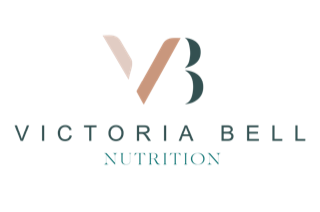Managing Irritable Bowel Syndrome
Discussing something as personal as your bowel movements or constant bloating and discomfort can be embarrassing for many. So it may not be a surprise that people often self-diagnose IBS or avoid seeking medical attention for months or years. But IBS is the most common functional gastrointestinal disorder in the developed world, affecting up to 1 in 5. It is more common in women than men, with typical onset in the teen years and twenties but it can also affect children.
The condition is classified into several types; IBS-C (predominantly constipation), IBS-D (predominantly diarrhoea), IBS-M (mixed) and IBS-A (alternating). As well as diarrhoea and constipation, other common symptoms include feeling like you haven’t been able to empty your bowels fully, abdominal cramps and bloating. Other symptoms may include anxiety, depression, tiredness, nausea, heartburn, frequent urination, headaches and muscle pains. IBS can have a big impact on daily life, including work, exercise, enjoying eating and sleep.
It is advisable to seek a diagnosis of IBS with your doctor, and there are certain symptoms that should always be investigated as soon as possible. These include bleeding from the rectum, unexplained weight loss, persistent fever and malaise, an ongoing change of bowel habit for no obvious reason and sudden changes in digestive symptoms over the age of 50. Investigation of these and the symptoms above is vital to rule out any other conditions.
There is no one known cause of IBS and it is considered to be a chronic disease, without a cure. Many factors can contribute to it including genetics, diet, stress, poor sleep, trauma, gastroenteritis and antibiotics. Many medications may be offered to address symptoms such as antispasmodics, laxatives, antidepressants and sleeping tablets, but often resolution of one symptom may result in a new side effect.
It is however possible to take natural measures to calm and control the symptoms of IBS and significantly improve quality of life. The first step is to look at what the underlying causes of the symptoms may be and where possible, remove triggers. Nutritional therapists are trained to help work through this process with their clients and support them with a nutritional protocol. There are many steps individuals can take, such as the following:
· Identify any dietary triggers of IBS symptoms. For some this may be a case of eliminating dairy and/or gluten, or it may involve lots of different foods such as those high in FODMAPs (fermentable carbohydrates). An elimination diet may be required to identify which foods trigger symptoms and by following many of the other steps it may be possible to reintroduce some of these foods later on or build up a degree of tolerance.
· Involve some daily movement such as walking or gentle yoga and aim to introduce some more intensive exercise one to three times per week. Exercise that is enjoyable is best, and it is important not to exercise excessively as this can exert stress on the body and exacerbate symptoms.
· Load up on lots of fresh vegetables and some fruit each day, although if you are experiencing severe bowel symptoms you may wish to build up gradually. A good guide is to fill half of your plate for lunch and dinner with vegetables in a range of colours and include 1-3 portions of fruit (great choices are apples, stone fruits and berries) daily.
· Consider the health of your microbiome (gut bacteria) by introducing a good quality probiotic. We need to feed the good bacteria with lots of good quality plant foods (see above) and weed out the bad by limiting sugar, refined or trans fats and processed foods. If budget allows, a diagnostic stool test can also be useful in identifying pathogens, parasites, low levels of commensal bacteria or insufficient digestive enzymes.
· Use bitter foods to stimulate digestion such as rocket, watercress, artichoke, or apple cider vinegar. Chew food slowly and sip water with meals rather than drinking lots as it dilutes stomach acid. Drink tea and coffee away from meals as they can bind to certain proteins and minerals and contribute to acid reflux.
· Drink lots of water, aiming for 2 litres per day including teas. Drink an extra glass of water for every cup of coffee.
· Consider aspects of your life which are causing you stress, if possible implement some new strategies to prevent overload such as asking for help, letting go of commitments that no longer work for you and finding moments in your day to rest or do something enjoyable. Time spent outdoors, hobbies, massages and meditation or breathing exercises are all great choices.
· Spend time with friends and family and if you would like to, consider joining local groups or a class to connect with people.
· If you feel that it would help you, consider other therapies such as cognitive behavioural therapy (CBT), emotional freedom tapping (EFT), counselling, hypnotherapy, acupuncture, massage, reflexology, homeopathy or aromatherapy.
IBS can be quite hard to come to terms with if the diagnosis is fairly recent, but with 20% of the population affected by it you are not alone. With lots of time focussed on your self care, you can work towards regaining your energy and getting back to enjoying life.
If you would like to know more about how nutritional therapy could help you, contact me at info@victoriabellnutrition.co.uk 07873 121616.
